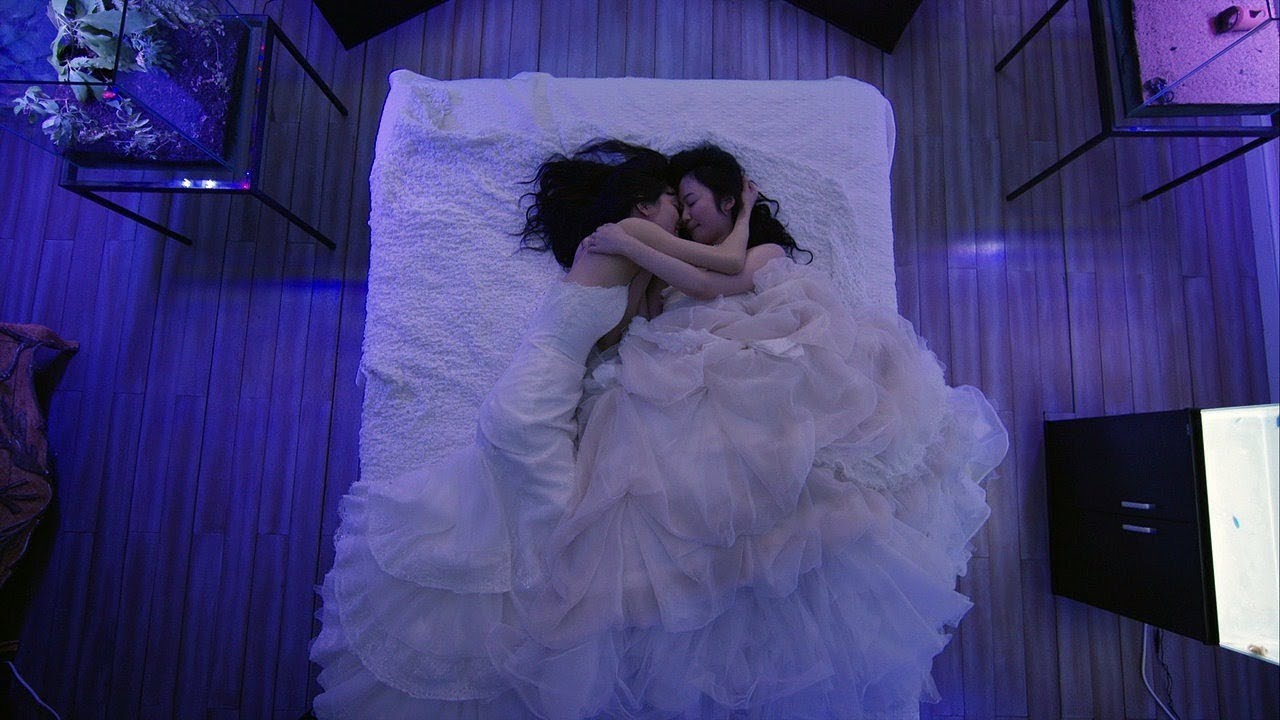
Some life discoveries are made in an instant, others take just shy of three hours.
We all know social media isn’t the place to look for answers to life’s bigger questions or for directions on our own personal choices, but we do it anyway. There’s a comfort in its immediacy and in the variety of options and personalities found in the online world. It’s a false comfort, though, and while some see through its veneer of lies quickly others can easily get lost in its promises and illusions.
Nanami (Haru Kuroki) belongs in the latter group, and when we first meet her she’s actually meeting an online date. They’re both teachers, and they hit it off quickly enough that a plan to marry follows, but Tetsuya is concerned that his bride-to-be only has two guests attending the wedding. She tells a little white lie, and with the help of an online friend named Amuro (Gô Ayano) she hires a group of actors to pretend to be her family and friends at the ceremony. They’re off to a rocky start, and it only worsens when she grows suspicious that her husband may be cheating. Amuro again comes to her rescue with an offer to investigate, but her concerns spin out of control when a man appears claiming that Tetsuya is sleeping with his girlfriend.
Once more, Amuro arrives to offer help, but once more, things get far worse before they get better. Nanami’s meeting with the man is recorded, select clips are sent to Tetsuya’s already disapproving mother, and just like that she’s out on her ass and alone. And like clockwork… Amuro is back to help.
Writer/director Shunji Iwai‘s (Hana & Alice) latest, adapted from his own novel, is an unhurried look at one woman’s journey of self-discovery. A Bride for Rip Van Winkle sees her put through a cynical and sad grind on the way to enlightenment, and it unfolds at a leisurely pace peppered with acts of cruelty, surprises, and heart.
Like the film itself, viewers will take their time warming up to Nanami as she too often exists as a floor-mat for those around her. She’s soft-spoken and easily played by students and others alike, and her efforts to stay not only in people’s good graces but also to fit “the norm” of society leaves her open to manipulation. It’s here where the film’s three-hour running time hurts the most as we’re left early on wondering if she deserves our attention. Growth takes time, though, and viewers who stick with Nanami’s journey will find a woman who wants to change and needs only the rarity of honest companionship and compassion to reach it.
The fact that she finds both in an act of deception speaks to the illusory sharpness of Iwai’s script. Nanami goes on to befriend another young woman who appears to be in a similar situation — working odd jobs in search of happiness and security — and both find themselves working as maids in a large house filled with objects but devoid of other people. She and Mashiro (Cocco) bond through sickness and in health, and Iwai carries us along on their journey with increasing warmth and love on their way to more revelations.
Performances are engaging throughout with a fine balance being struck between Kuroki’s weak appearance and Cocco’s brash attitude, but it’s Ayano who holds our attention and imagination the strongest. Amuro is an admitted actor, and Ayano convinces at every turn whether it be as friend, confidant, role-player, or deceptive acquaintance. A scene where he shares a drink with a grieving mother is both highly entertaining and informative as to his true character. Or is it?
A Bride for Rip Van Winkle takes its time immersing viewers into Nanami’s crumbling life, and it’s even longer before the progress she’s exhibiting earns our affection and support, but personal growth doesn’t happen overnight. One minute she’s letting herself be victimized, and another minute she’s offering advice to the next generation regarding expanding her horizons… and in between them both there’s life.
